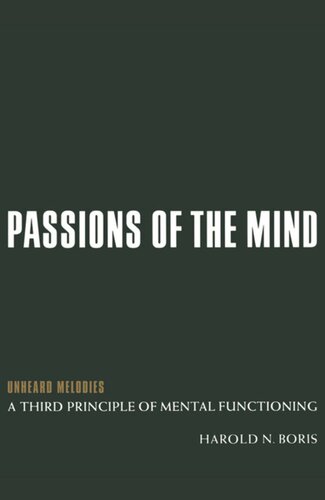

Most ebook files are in PDF format, so you can easily read them using various software such as Foxit Reader or directly on the Google Chrome browser.
Some ebook files are released by publishers in other formats such as .awz, .mobi, .epub, .fb2, etc. You may need to install specific software to read these formats on mobile/PC, such as Calibre.
Please read the tutorial at this link: https://ebookbell.com/faq
We offer FREE conversion to the popular formats you request; however, this may take some time. Therefore, right after payment, please email us, and we will try to provide the service as quickly as possible.
For some exceptional file formats or broken links (if any), please refrain from opening any disputes. Instead, email us first, and we will try to assist within a maximum of 6 hours.
EbookBell Team

4.4
82 reviewsAs social animals, each of us can only be partly understood through insights into our individual psychodynamics. There is, within us, another principle at work: to preserve the group, even at the expense of the individual.
In this innovative synthesis of classical psychoanalysis and recent interpersonal and object relations psychology, Harold N. Boris constructs a necessary bridge between individual psychodynamics and group dynamics. This bridge rests upon two, complementary foundations: the egoistically- defined pleasure principle of The Couple and the socially defined selection principle of The Pair.
Unheard Melodies shows how these two states of mind often compete, each being a distinct mental state seeking its own objectives. When analyzed, both mental states reveal their own characteristic themes and feelings, presences and absences, all of which are intertwined in the unique, patterned music of psychoanalysis. To demonstrate the patterning of these mental states, Boris presents the transcription of a composite analysis, an astonishing documentation of his own clinical experience, showing The Couple and The Pair playing together in the analytic setting. These clinical transcripts, complete with commentary, provide rare glimpses into the psychoanalytic process that will interest psychoanalysts, sociologists, and casual students of the mind and society.